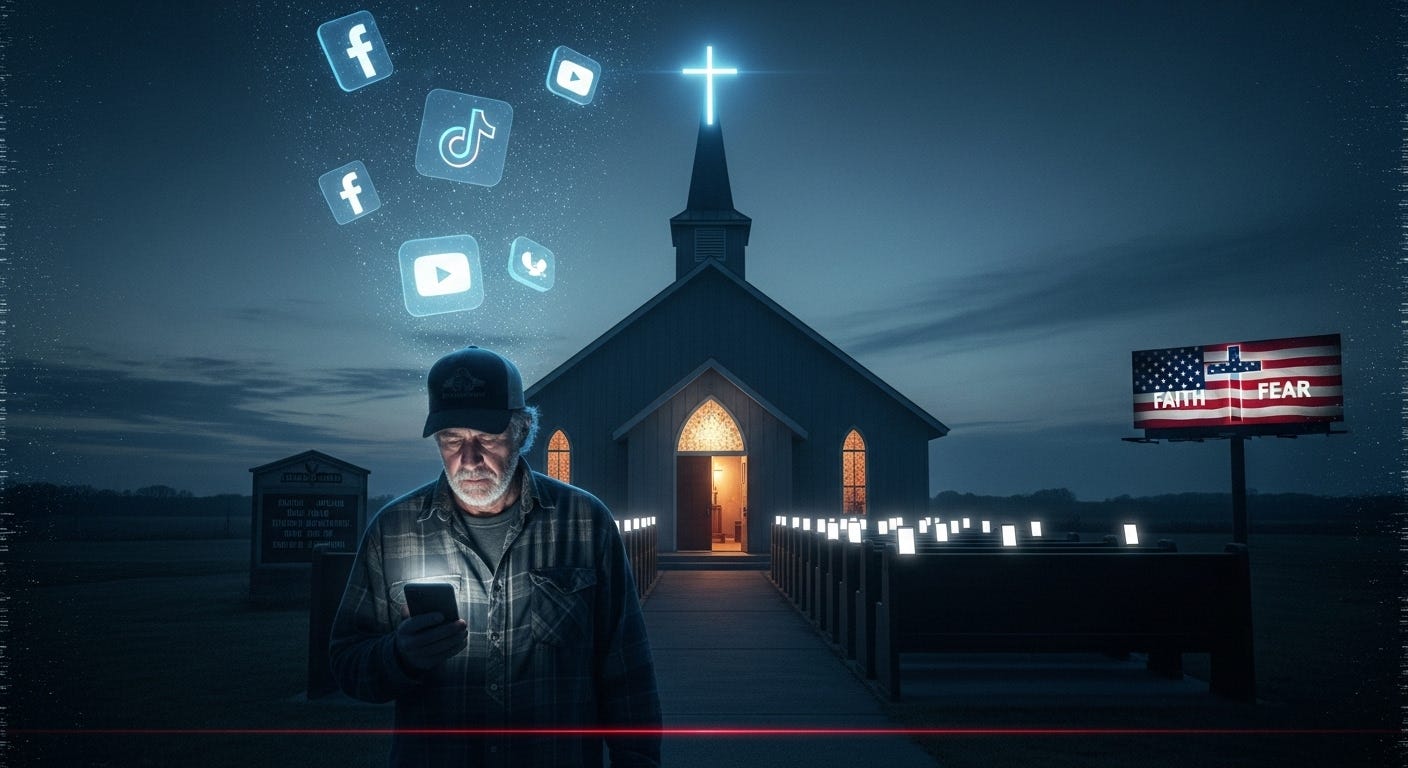The Gospel According to Silicon Valley
How Big Tech turned poor evangelicals into digital soldiers of fear, rage, and divine conspiracy.
The New Holy War isn’t something with swords or sermons anymore. It’s fought with memes.
Poor white evangelicals, once shaped by local pastors and church gossip, now get their worldview from glowing rectangles. Their pulpits are Facebook feeds. Their preachers are YouTube prophets. Their faith isn’t just abou…



